CRM and automated campaign management with AI integration
Android rules the mobile world with a staggering 71.72% global market share. This dominance makes mobile phone control a necessity. The internet keeps expanding with more than 6 billion indexed web pages and roughly 252,000 new websites popping up each day. Companies need the quickest way to handle their digital presence and customer relationships.
IT professionals can now monitor, manage, and secure Android devices from any location through remote control apps. These solutions work with both supervised and unsupervised access, which makes them perfect for various business scenarios. The technology's reliability speaks for itself - Splashtop alone helps more than 20 million users worldwide. Support teams can fix problems remotely. This approach saves valuable time and resources while making customer service better.
This piece shows how businesses can use CRM systems with AI to automate their campaigns. These systems help companies involve customers better and create stronger marketing outcomes through advanced tech.
Understanding AI-Driven CRM and Campaign Automation
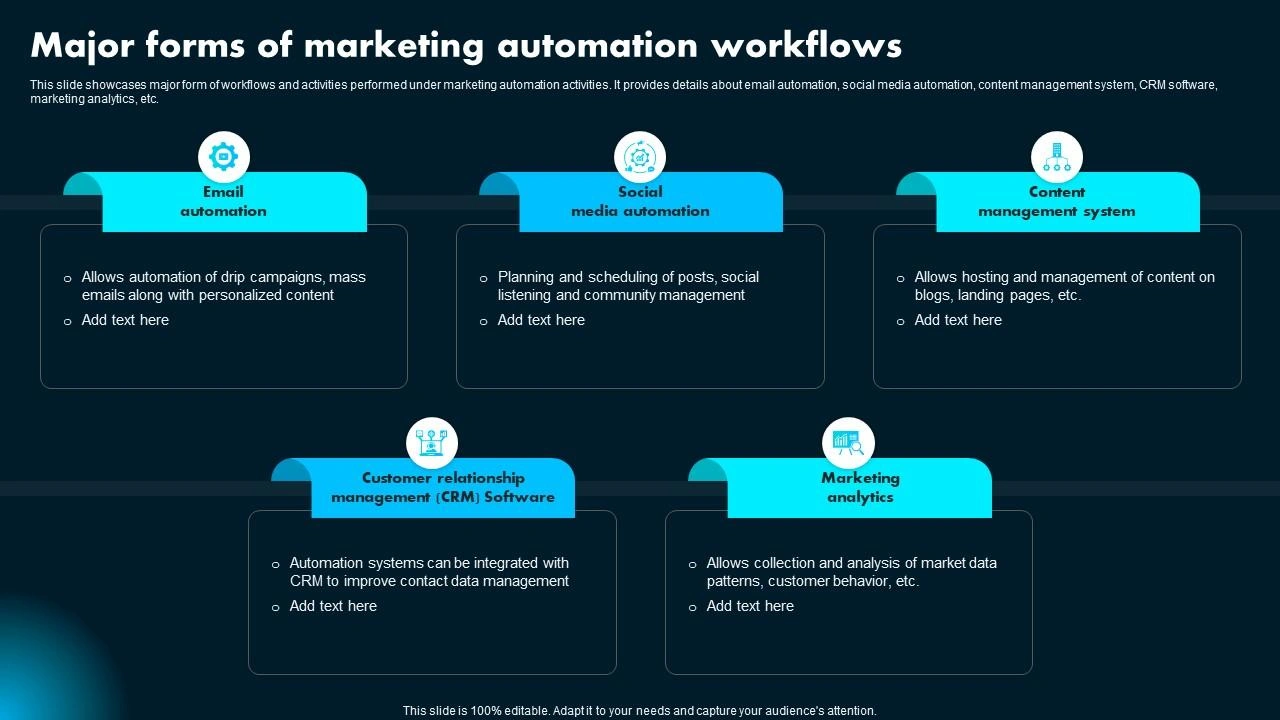
AI technology has changed how businesses handle their customer relationships. The combination of artificial intelligence with CRM systems creates powerful tools that turn customer data into practical insights and automated processes.
What is an AI-powered CRM?
AI-powered CRM refers to customer relationship management systems that use artificial intelligence technologies like machine learning, natural language processing (NLP), and predictive analytics. These advanced systems do more than just store and retrieve data. They make shared business processes possible through organized and efficient customer information management.
AI-powered CRM takes care of repetitive tasks, analyzes huge amounts of customer data, and creates customized, meaningful interactions. AI's predictive nature makes workflows better and helps organizations create more customized communications with their customers. AI turns CRM platforms from simple databases into active business drivers that analyze patterns, predict behaviors, and optimize workflows automatically.
These systems use machine learning algorithms to get better over time. AI-powered CRMs become more accurate at predicting customer needs and behaviors as they process more data. This allows businesses to spot market trends early instead of just reacting to them.
How campaign automation works with CRM
Campaign automation with CRM builds a continuous system where marketing efforts coordinate based on customer data and behaviors. Marketers can create target audience segments using detailed data from marketing, commerce, sales, service, revenue, and campaign sources when they use an AI-powered CRM.
Modern AI-powered CRMs are most effective when paired with robust enterprise search capabilities, enabling teams to quickly retrieve relevant customer insights from multiple systems. These demonstrate how this integration streamlines campaign management and boosts overall efficiency.
The system starts with data preparation and integration. AI analyzes customer data to find new insights for communication. It uses technologies like Natural Language Processing to understand customer reactions after specific brand interactions. This information helps decide what message should go out next.
AI figures out which campaigns should reach specific customers during campaign orchestration. Marketers can now create more campaigns without worrying about which campaign each customer should see next. AI models quickly spot all available campaigns for each customer and pick the best next action to optimize marketing automation.
Marketers can turn customer and prospect behavior into AI-generated customized messages, content, and offers using social and marketing campaign data. CRMs also guide customers by sending messages and emails when certain things happen. They alert employees about important changes or predict potential sales opportunities.
Benefits of integrating AI into CRM workflows
AI in CRM workflows creates major advantages for businesses in different departments:
- Better Customer Insights: AI processes and analyzes customer data faster than humans ever could. Businesses learn more about their customers by spotting trends and priorities. This leads to better decisions. The technology helps predict customer behavior and find high-value leads.
- Quick Results: AI handles routine tasks like data entry, follow-ups, and scheduling. This lets sales and customer service teams build meaningful customer relationships. Forbes reports that 46% of business owners now use AI in customer relationship management.
- Custom Customer Experiences: AI analyzes customer data through algorithms and suggests products or services that match each customer's needs. AI-powered CRM systems customize marketing materials and group customers based on what they buy and how they interact.
- Better Data Quality: AI keeps customer data clean and accurate. It automates data entry, cleaning, and enrichment step by step. Businesses can make better decisions with high-quality information.
These benefits together allow teams to personalize customer interactions better. They can design templates that fill in important information automatically. Marketing teams can pass relationships to sales through the CRM system smoothly. This creates a complete customer experience.
Types of AI Automation in Campaign Management
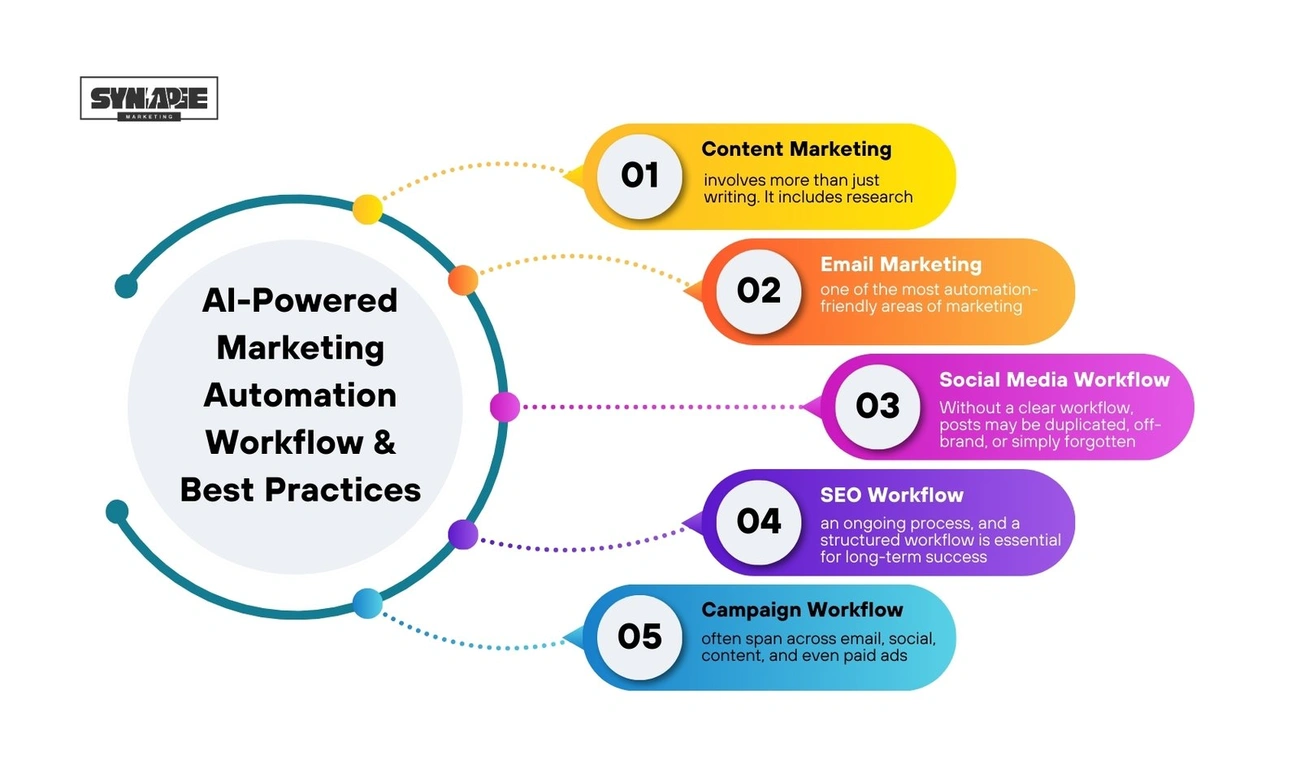
AI technologies have transformed campaign management beyond simple automation. Sophisticated AI now powers marketing campaigns and helps businesses create individual-specific experiences at scale in this digital era.
Predictive lead scoring using machine learning
Machine learning algorithms power predictive lead scoring by analyzing historical customer data to spot conversion patterns. AI-powered scoring looks at multiple data points to calculate conversion probability, unlike traditional scoring methods with static rules. The system looks at website behavior, email interactions, past purchases, and demographic information to identify leads with the highest conversion potential.
Sales teams can now remove guesswork from their process. To name just one example, predictive models show that leads visiting pricing pages twice weekly convert 40% more often. A survey shows that 98% of sales teams using AI report better lead prioritization.
Salesforce Einstein analyzes customer data through algorithms that provide lead score metrics customized for each business, including average score by source and conversion rate distribution. HubSpot's predictive lead scoring groups contacts into tiers based on their likelihood to close within 90 days, from "Very High" to "Low".
AI-based customer segmentation models
AI segmentation takes a closer look at complex behavioral patterns, moving beyond simple demographics. These models analyze large amounts of data to create specific micro-segments based on purchasing behavior, online interactions, browsing history, and social media sentiment.
Customer groups evolve continuously based on behavioral changes, which lets marketers adapt their strategies immediately. These models start by analyzing multiple data sources like CRM data, website analytics, and third-party information. They then identify patterns to create dynamic segments that adapt as customer priorities shift.
Natural language processing for email personalization
NLP has revolutionized email marketing by analyzing, understanding, and generating human-like text. CRM systems can now craft email content that strikes a chord with specific recipients. NLP goes beyond adding names - it analyzes customer sentiment after brand interactions to determine the next best message.
Sentiment analysis helps identify whether customers feel positive, negative, or neutral about previous communications. A global e-commerce retailer used NLP-based sentiment analysis and improved retention by 12% among customers with negative experiences who received personalized follow-ups.
Chatbot integration for real-time engagement
CRM-integrated chatbots provide instant support while collecting valuable data. These AI assistants handle routine questions, deliver consistent messaging, and free human agents to tackle complex issues.
Each chatbot conversation gets logged in the CRM, creating a complete customer view and generating useful analytics. This smooth integration means conversations have context, whether answering simple questions or suggesting products based on purchase history.
Chatbots connected to CRM create proactive engagement opportunities. They can review CRM information during conversations to spot upselling chances - like suggesting a warranty when someone asks about laptops. They also predict customer needs by sending automatic reminders about subscription renewals or warranty expiration.
Top Platforms Supporting AI-Integrated CRM Campaigns
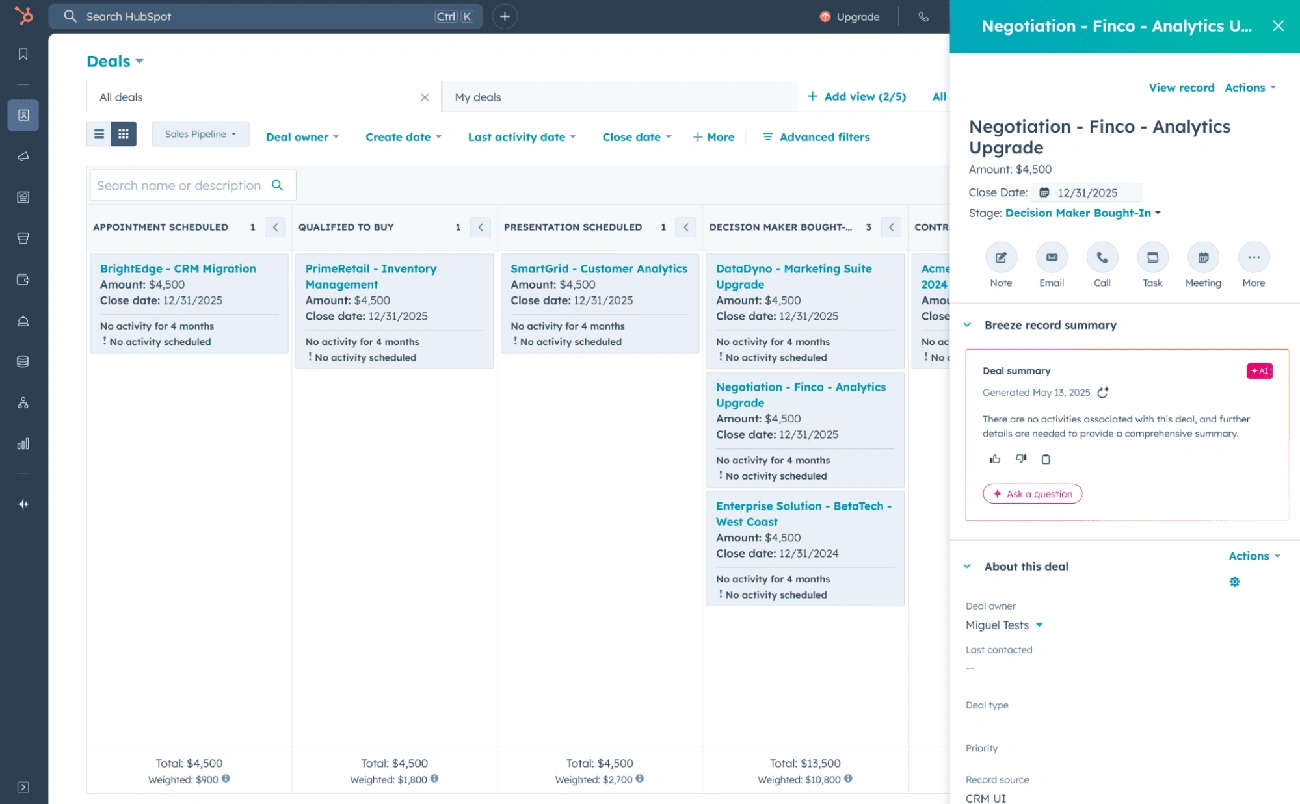
Many prominent technology companies have created sophisticated AI-integrated CRM platforms that simplify campaign management. These solutions help businesses improve their customer participation strategies in different ways.
Salesforce Einstein for predictive analytics
Salesforce Einstein is a complete AI suite built into the Salesforce platform. The system works throughout the Customer 360 ecosystem to automate tasks and reveal insights. Einstein's deep integration connects with Sales Cloud, Service Cloud, Marketing Cloud, and other Salesforce products.
The platform's predictive analytics process over 1 trillion analyzes weekly and help sales teams focus on leads that convert better. About 75% of businesses using Salesforce Einstein report higher sales productivity. The platform scores leads, updates forecasting predictions live, and creates tailored emails that match specific contacts and deal contexts.
HubSpot AI tools for campaign optimization
HubSpot provides AI-powered tools called "Breeze" that work across marketing, sales, and service functions. These tools include AI agents that automate workflows from start to finish.
We focused on content creation and campaign optimization with HubSpot's AI capabilities. The platform includes an AI blog writer and email composer that creates content much faster than manual writing. The results show that 80% of businesses using HubSpot AI Tools see better customer participation. The flexible pricing starts at £39.71 monthly and goes up to £1,588.32 monthly.
Zoho CRM with Zia AI assistant
Zoho's AI assistant Zia operates throughout the Zoho ecosystem to boost productivity and transform workflow management. Zoho stands out by owning its entire technology stack—from data centers to applications. This setup allows quick innovation without exposing customer data to other companies.
Zia gives sales teams specialized AI tools that predict customer churn, score leads to identify promising prospects, and forecast revenue while spotting unusual patterns in targets. The system suggests the best times and methods to reach customers, which increases the chances of successful engagement.
Adobe Experience Cloud for cross-channel automation
Adobe Experience Cloud delivers complete solutions to manage campaigns across channels. Adobe Sensei powers the platform to analyze and predict email open rates, best send times, and likely churn based on past engagement data.
The system excels at triggered email campaigns and sends automatic transactional emails like order confirmations or remarketing messages based on user actions across emails, apps, or websites. Marketers can use the accessible visual workflow interface to handle multiple data sources, create audience segments, and design multi-step campaigns across channels. The Adobe Campaign also simplifies mobile marketing tasks, from responsive emails to push notifications and in-app messages.
Step-by-Step Setup of AI Campaign Automation
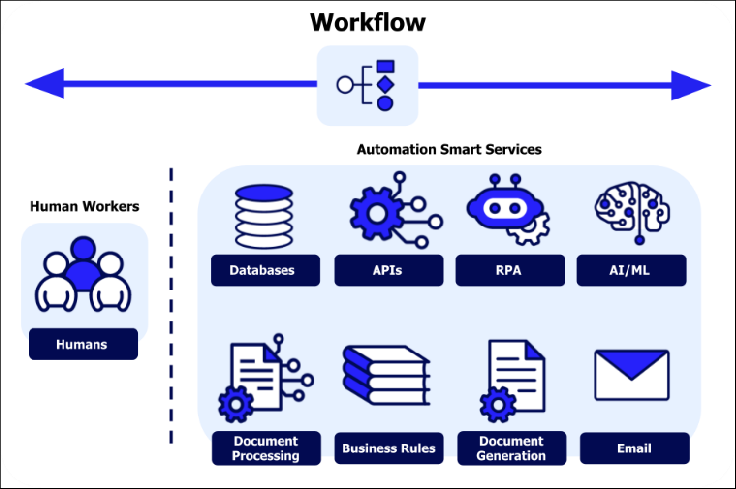
AI campaign automation needs a well-laid-out approach that starts with organizing data and ends with complete testing. This step-by-step process will give a solid foundation for AI-powered marketing campaigns.
Data preparation and CRM integration
The right AI integration begins when organizations gather data from multiple sources into one unified system. This vital first step needs clean and standardized information to remove duplicates, fix errors and maintain consistent formatting. Companies lose an average of GBP 10.24 million each year due to poor data quality, which shows why proper data governance matters. Tools like KingswaySoft's SSIS Integration Toolkit help optimize this process with codeless data integration.
Training AI models on customer behavior
Customer patterns from past data are the foundations of AI model development. The team should analyze closed deals from the last 2-3 years to see which traits relate to successful outcomes. These patterns help configure AI for lead scoring and prediction settings. Machine learning models learn about lead characteristics and help tailor outreach strategies better.
Setting up automated workflows and triggers
The workflow process starts by defining triggers - conditions that start automation sequences. These triggers work through filters (when criteria matches) or events (when something happens). The next step configures system actions that happen after triggers, such as sending follow-up emails or giving leads to sales teams.
Testing and validating campaign logic
Small user groups should test workflows first before full rollout. The core team needs to track important metrics like response times, task completion rates and workflow performance. This testing helps spot problems early and lets teams refine the system before complete deployment.
Use Cases and Performance Metrics
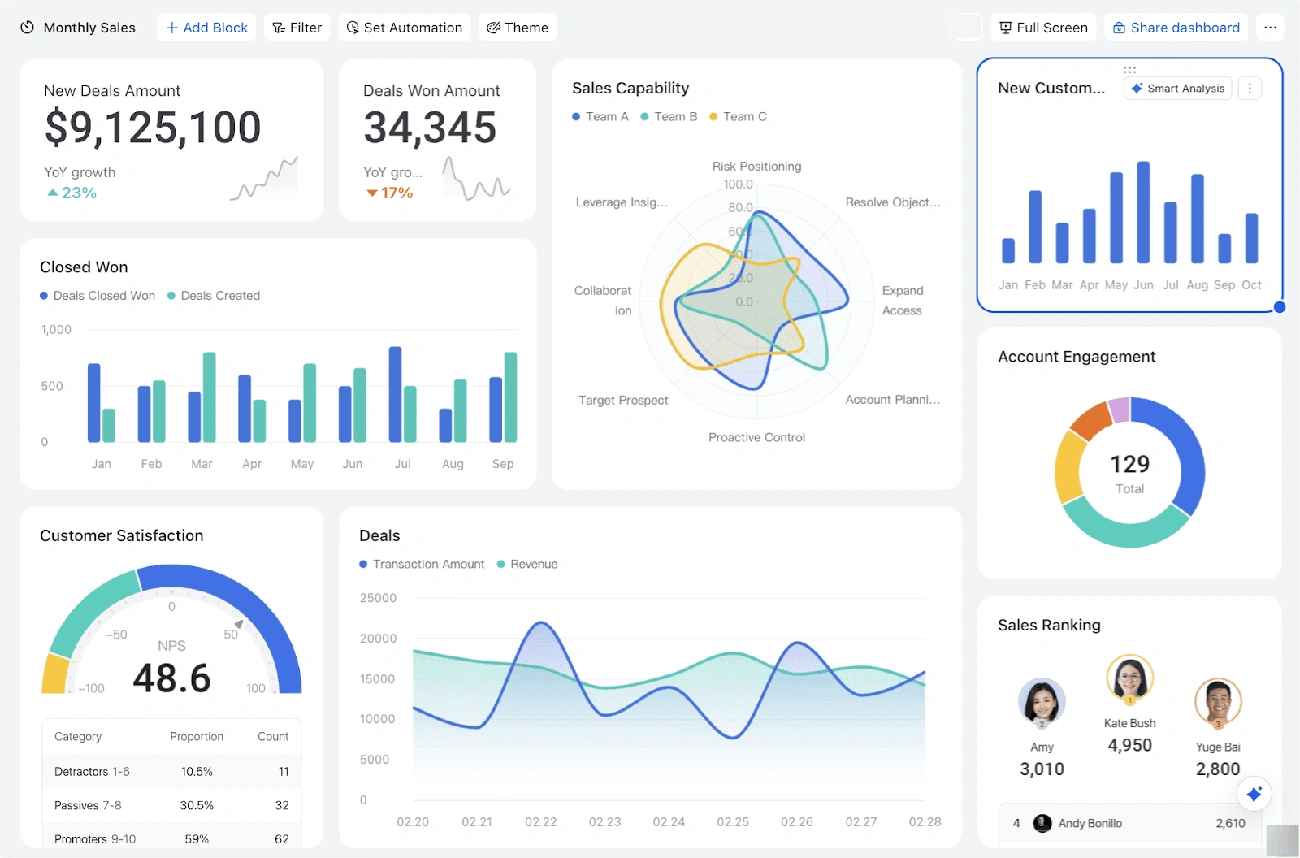
AI-CRM integration proves its worth through measurable results in campaigns of all types. Companies that implement these systems see better ROI from their targeted strategies and informed decisions.
AI-driven re-engagement campaigns
Re-engagement campaigns help businesses reconnect with inactive customers through tailored outreach. AI spots dormant accounts and creates relevant messages based on customer behavior and anticipated needs. Upday, a free news app, successfully reactivated 528,000 users with this approach. The best campaigns treat communications like respectful conversations. They often use a final goodbye strategy that makes customers want to stay. AI analyzes past data to find the right moment to reach out before customers become completely inactive.
Churn prediction and retention strategies
AI predicts customer churn by looking at engagement patterns, payment records, and sentiment data. Machine learning models like Random Forest achieve 94% accuracy with 98% AUC (Area Under Curve). Companies can boost their profits by 36% when they use AI frameworks correctly. Businesses that use predictive analytics report 25% higher sales and 30% fewer customer complaints. Telecom companies have cut their churn rates by 15% by stepping in early with AI.
Open rate and click-through rate improvements
Email campaigns powered by AI get 41% higher open rates and 35% better click-through rates than traditional methods. These results come from smart personalization - AI adjusts content, subject lines, and sending times automatically. Recent numbers show open rates grew from 33.07% in 2023 to 36.24% in 2024. One marketer's A/B testing results improved tenfold with generative AI. Companies using AI in their campaigns see click-through rates jump by up to 59%.
Conversion tracking with AI attribution models
AI attribution models track customer interactions across channels and give credit based on actual impact rather than simple rules. Unlike basic last-click tracking, these AI models process thousands of data points instantly to find which touchpoints truly lead to sales. Companies typically cut their customer acquisition costs by 15-25% within 90 days of using these systems. Multi-touch attribution gives marketers a clear view of their customer's experience and helps prove marketing's value. Platform reporting differences drop by 20-30% with proper AI attribution.
Conclusion
AI-powered CRM systems have changed how businesses handle their campaigns. Companies can now analyze huge amounts of customer data, predict behaviors, and deliver tailored experiences at scale through smart automation. This gives organizations a competitive edge through better customer insights, simplified processes, and focused marketing efforts.
Combining AI with traditional CRM platforms creates strong systems where predictive analytics, natural language processing, and machine learning work as one. These technologies help businesses score leads with precision and segment customers dynamically. They can craft personalized messages and connect with prospects through automated chatbots in real time, which is why many professionals now look at an artificial intelligence course to better understand how these systems actually work in real business environments.
Platforms like Salesforce Einstein, HubSpot, Zoho CRM, and Adobe Experience Cloud show these technologies in action. Each platform helps marketers run better campaigns across channels while keeping customer experiences consistent. These platforms grow stronger as AI technologies advance, which creates new ways to customize campaigns and boost efficiency.
Companies that combine AI with CRM see clear results. Higher open rates, better click-through percentages, less customer loss, and precise attribution models directly boost revenue. The numbers tell the story - AI-driven marketing automation brings great returns when used correctly.
Success awaits organizations that welcome these new technologies. Companies that prepare quality data, train AI models, set up smart workflows, and test their systems regularly will lead their industries. Success depends on careful planning, technical know-how, and a commitment to making decisions based on data.
Customer expectations keep rising, and AI-powered CRM systems will become a must-have tool. This technological progress changes how businesses understand and bond with their customers. Without doubt, companies that become skilled at AI campaign automation today will guide their markets tomorrow.